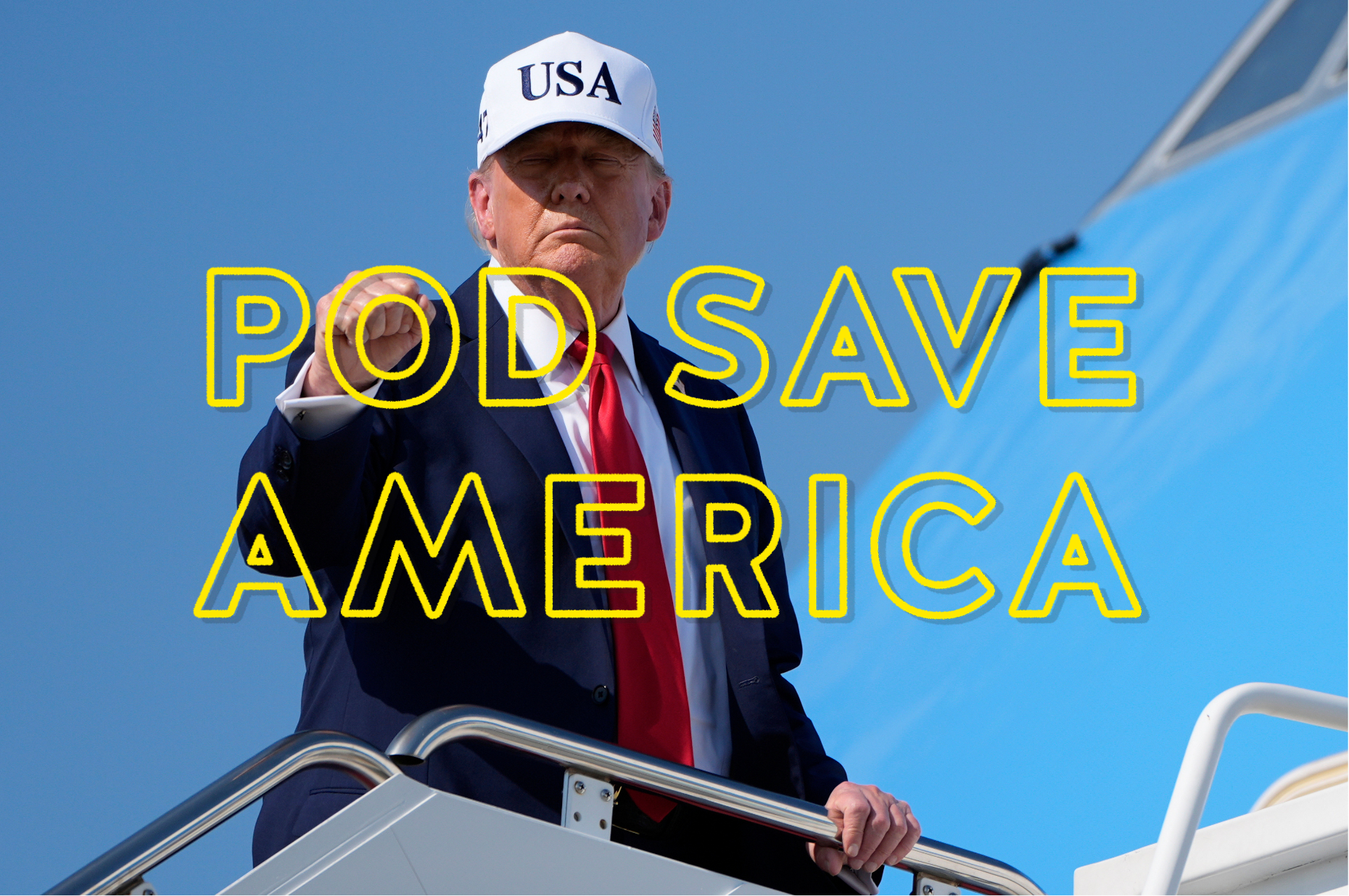
Crooked Media has partnered with Change Research to conduct a series of Democratic primary polls. The second entry in this PollerCoaster series is now available. You can see our toplines here, crosstabs here, and view comparisons to our first poll here.
There’s no denying the first Democratic debate last month dramatically altered the course of the presidential primary campaign.
But the size of the impact has made it seem like a singular event, when there’s at least some evidence to suggest it was part of a pattern.
On the one hand, the debate was the first time the candidates were able to confront one another in a chaotic and unpredictable way, and the results were, well, chaotic and unpredictable. But on the other hand, it was a big dose of education for Democratic primary voters, and the fallout matches what data tells us about how voters have tended to respond to these candidates as they’ve become acquainted with the field.
That data comes from Crooked Media’s latest survey of Democratic voters in Iowa, New Hampshire, and South Carolina.
We polled 1261 Democratic voters from June 29 to July 4, after the two-night debate, about their candidate preferences and how the debate had shaped their thinking about the race.
Like many post-debate polls, ours found the event—particularly night two—scrambled a race which had until then been dominated by frontrunner Joe Biden. Before the debate, Biden enjoyed the support of 29 percent of early-state Democratic voters, and a formidable nine-point lead over Bernie Sanders in second place. Kamala Harris didn’t crack double-digit support.
Now, Biden doesn’t lead among these voters at all. Our results show Sanders and Elizabeth Warren tied for the lead with 19 percent a piece (Sanders -1; Warren unchanged), followed by Biden at 18 (-11), Harris at 17 (+12), and Pete Buttigieg rounding out the top five at 15 (-1).
If you watched the debate or followed the aftermath, you won’t find this surprising. Harris confronted Biden in a searing way over his record of working with segregationist senators to oppose busing in the 1970s, Biden was unprepared for it, and he’s been scrambling to recover ever since. His steep dive in the polls confirmed our sense after our first poll that his commanding level of support among black voters was driving his lead, but also a source of vulnerability. After Harris punctured the sense that Biden was best prepared to compete against Trump, his support among black voters nose-dived from 62 percent to 39 percent. Harris was the biggest beneficiary of this slide, but not the only one. Sanders’s support among black voters jumped from five percent to 18, and Warren’s from seven to 12. Given how little their top line numbers changed, this suggests that the debate changed the composition of their support.
The next debate might not change the race in the same way, or by the same magnitude, but the direction of the change in polling is not surprising and it won’t be surprising if it becomes a trend.
These debates, particularly the early ones, are the most direct and far-reaching means by which voters will learn about the field of candidates, and as they learn more, their views about the race will harden. Indeed, this process has already begun.
Before the first debate 65 percent of respondents claimed to be “very confident” that they would ultimately vote or caucus for the candidates they currently support, while 28 percent claimed to be only “somewhat confident.” After the debate, that gap widened to 70-25. Undecided voters are learning and they’re making up their minds. That means debates have the potential to be volatile, and generate large swings in the polls, early on, but have diminishing impact over time.
If this is the principle effect of the debates, it’s bad news for Biden and Sanders, and good news for Harris and Warren.
This poll, like the one before it, found that Warren draws her support disproportionately from high-awareness voters, while Sanders and Biden benefit from the support of low-awareness voters. Harris’s newly elevated support looks more like Warren’s, in this regard, then Sanders’s’ and Biden’s. Voter awareness increased and Biden suffered for it.
We’ll know in a few weeks whether these high-exposure events continue to redound to the benefit of candidates who appeal to high-awareness voters. But what we know so far raises a few questions.
1) Can the candidates dramatically alter these dynamics? It’s easy to imagine a candidate melting down catastrophically in a way that shakes the faith of all voters, but can a candidate with low relative appeal to high-information voters make themselves seem more appealing to them?
2) Is Harris’s accomplishment durable? Of the frontrunners, her supporters are least certain that they will vote for her by the time the actual primary elections arrive.
3) If it’s durable, where do things go from here? If the men fall, both women will benefit, but not in the same way. Biden supporters list both Warren and Harris as their second choice candidates in very large numbers. But the same is not true of Sanders supporters, many of whom say they’d flock to Warren, almost none of whom say they like Harris as a back-up. Harris does have another big pool of potential support—but it’s among Warren voters.
4) If this dynamic does take hold, can Biden and Sanders find other ways to hang on? It’s possible! Biden and Sanders draw disproportionately from less-educated voters, who overlap with low-awareness voters, and it’s possible that different demographics will just see the race differently.
In other words, it could be that this theory of what’s happening is wrong or doesn’t capture things completely. Is it that as voters become more aware, they’re drawn to Warren and Harris? Or that the voters who have high awareness early are drawn to Warren and Harris, while the ones who become aware later might not be?
For now we can say: Biden and Sanders better hope it’s the latter.

